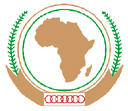African Union is determined to end crisis in Darfur: Ibok
By Peter Masebu
 BERLIN, Germany, Sep 15, 2004 (PANA) — The priority of the African Union (AU)
BERLIN, Germany, Sep 15, 2004 (PANA) — The priority of the African Union (AU)
is to end the misery and sufferings facing the people in western
Sudan’s Darfur region rather than immediate concentration on
whether ethnic cleansing or genocide has occurred there, a senior
AU official said in the German federal capital, Berlin.
“Our preoccupation as African Union right now is to put an end to
their misery and problems and after then there will be time to
investigate and see who should be blamed,” said Ambassador Sam
Ibok, director of Peace and Security at the AU Secretariat in
Addis Ababa, Ethiopia.
In reaction to genocide claims in Darfur by the US, Iboak told
PANA: “If we get caught up in labelling whether it is ethnic
cleansing or genocide, it may affect our ability to make the kind
of effective intervention that we need to do as an African
organisation”.
In an exclusive interview Tuesday on the sidelines of a two-day
international policy dialogue on the theme “Development Policy
and the Armed Forces”, the Nigerian diplomat said the US might
have reached that conclusion on the basis of its own
investigations.
The German ministry of economic development and international
cooperation (BMZ) organised the conference.
“Our position is that we have not been able to establish
definitively that genocide has taken place for the simple reason
that we have not conducted any investigation and the United
Nations Genocide Convention on Genocide is very clear as to what
happens and what are its implications. There is need to do a
thorough investigation to see whether these terrible things have
happened and the numbers we are hearing about,” Ibok said.
Meanwhile, Ibok admitted that the Rwandan and Nigerian protection
force sent by the AU into Darfur “was too small” to deal with the
volatile situation in the troubled region where the Arab
Janjaweed militias have forced over one million people to flee
their homes. More than 100,000 others have been forced to cross
the border into Chad, while an estimated 30,000 persons have
reportedly died in the 18-month conflict.
Ibok said negotiations with the government in Khartoum were
underway to increase the number of AU forces in Darfur.
In reply to claims that Darfur has overshadowed the conclusion of
a final agreement in the two-decade long civil war in Southern
Sudan, Ibok said the AU continues to urge Khartoum “not to pursue
the peace process in Darfur at the expense of the talks in
Naivasha, Kenya”.
This is because “in any case, Naivasha seems to be like a brother
of Darfur and if they make it in Naivasha, then Darfur will be
lesser of a problem for them”.
The AU has organised peace talks in Abuja, Nigeria between the
Sudanese government and two rebel groups from Darfur — the
Sudanese Liberation Movement (SLM) and the Justice and Equality
Movement (JEM).
“We are encouraging the government of Sudan to find ways of
restarting the southern peace process. Both sides have said they
are going to conclude an accord. The only problem is the time and
some people also have tried to link the peace process in Darfur
with that of Southern Sudan,” Ibok further told PANA.
On the emerging hitches in Burundi’s power-sharing arrangement,
he said the South African mediator is trying to iron out the
objections raised by the Tutsi-dominated UPRONA party and its
allies.
He said the recent regional summit in Dar es Salaam, Tanzania
decided the envisaged elections should go ahead as planned,
although parties need to be flexible on the time table so that
all the problems can be ironed out beforehand.
However, Ibok said the most intractable problem in Burundi is the
continued fighting by Argaton Rwasa’s National Liberation Front
of PELIPEHUTU.
“We are trying to work with countries in the region to impose
some kind of sanctions on FNL after its classification as a
terrorist organisation if they still want to remain outside the
peace process. We have procedures to deal with this type of
groups on the continent,” he explained.
On the current pressure on Nigeria to hand over former Liberian
President Charles Taylor to the UN-backed special tribunal in
Sierra Leone to answer war crime charges, Ibok said such pressure
was unfair because the AU summit in Maputo, Mozambique endorsed
Taylor’s asylum in Nigeria.
He insisted that Nigeria acted on the basis of appeals by the
African Union and also by some members of the international
community and some members of the UN Security Council.
That decision was taken because there would have been no peace in
Liberia if Charles Taylor had not left,” the AU official added.
